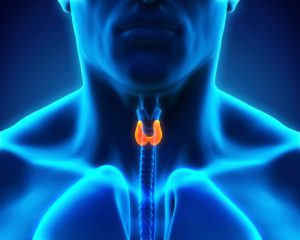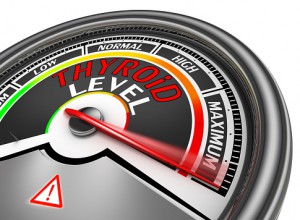 For most people, thyroid disease is a problem that only begins during adulthood. However, it can affect children and young adults as well, leading to a variety of symptoms such as fatigue, cognitive difficulties, and constipation. While these symptoms can indicate many potential conditions, a pediatrician will typically perform diagnostic testing to check whether thyroid disease may be the cause.
For most people, thyroid disease is a problem that only begins during adulthood. However, it can affect children and young adults as well, leading to a variety of symptoms such as fatigue, cognitive difficulties, and constipation. While these symptoms can indicate many potential conditions, a pediatrician will typically perform diagnostic testing to check whether thyroid disease may be the cause.
“Any time a child experiences these symptoms, they are screened for thyroid problems,” said Dr. Hariram Ganesh, a pediatric endocrinologist at Forest Hills Pediatric Specialists. “That screening is performed through the same type of blood testing that’s usually involved in a patient’s routine checkups.”
A family history of auto-immune disorders, as well as conditions such as diabetes and celiac disease, increase a child’s risk of experiencing thyroid problems. According to Dr. Ganesh, certain signs may also point to thyroid disease as the potential cause of your child’s symptoms, such as:
Hair loss: Thyroid problems may cause a higher volume of hair to fall out than normal in affected children.
Difficulty paying attention at school: “A lot of children who experience thyroid problems may have trouble paying attention or staying awake during class,” said Dr. Ganesh.
Irregular periods: “Irregular periods are a particular indicator of thyroid problems in children, as girls experience them more often than boys,” said Dr. Ganesh. “A mother with thyroid disease can pass it down to her daughter.”
Delayed development and speech problems: While not as common as in older children, thyroid problems can affect newborn babies, leading to delayed physical development and speech impairments if they are left untreated or not caught early. “A baby as young as two or three years old may have to be given thyroid medicine if problems are detected during newborn screening tests,” said Dr. Ganesh.
If you notice these potential signs of thyroid disease in your child, you can schedule an appointment for diagnostic testing at Forest Hills Pediatric Specialists by calling (718) 704-5020.
All content of this newsletter is intended for general information purposes only and is not intended or implied to be a substitute for professional medical advice, diagnosis or treatment. Please consult a medical professional before adopting any of the suggestions on this page. You must never disregard professional medical advice or delay seeking medical treatment based upon any content of this newsletter. PROMPTLY CONSULT YOUR PHYSICIAN OR CALL 911 IF YOU BELIEVE YOU HAVE A MEDICAL EMERGENCY.





